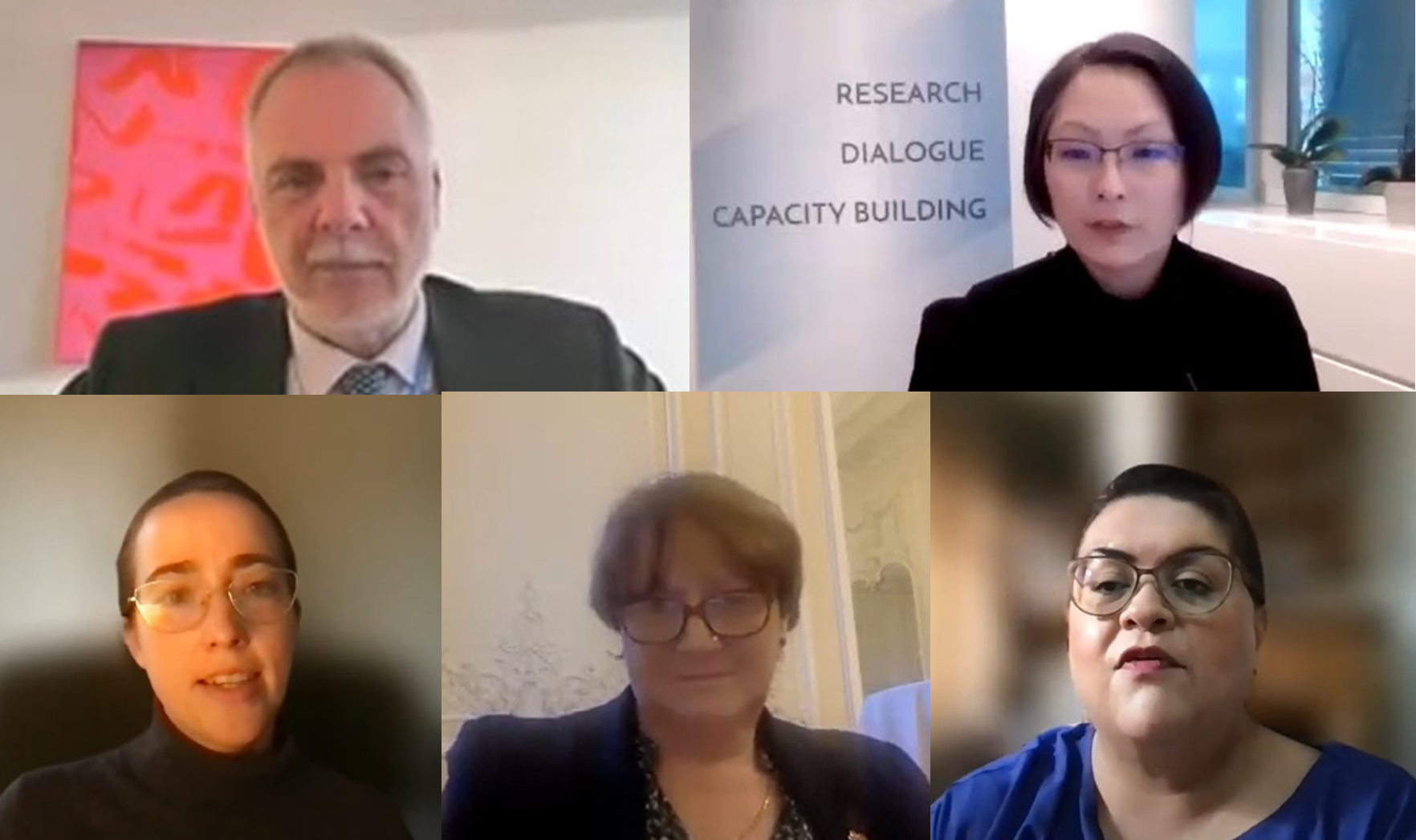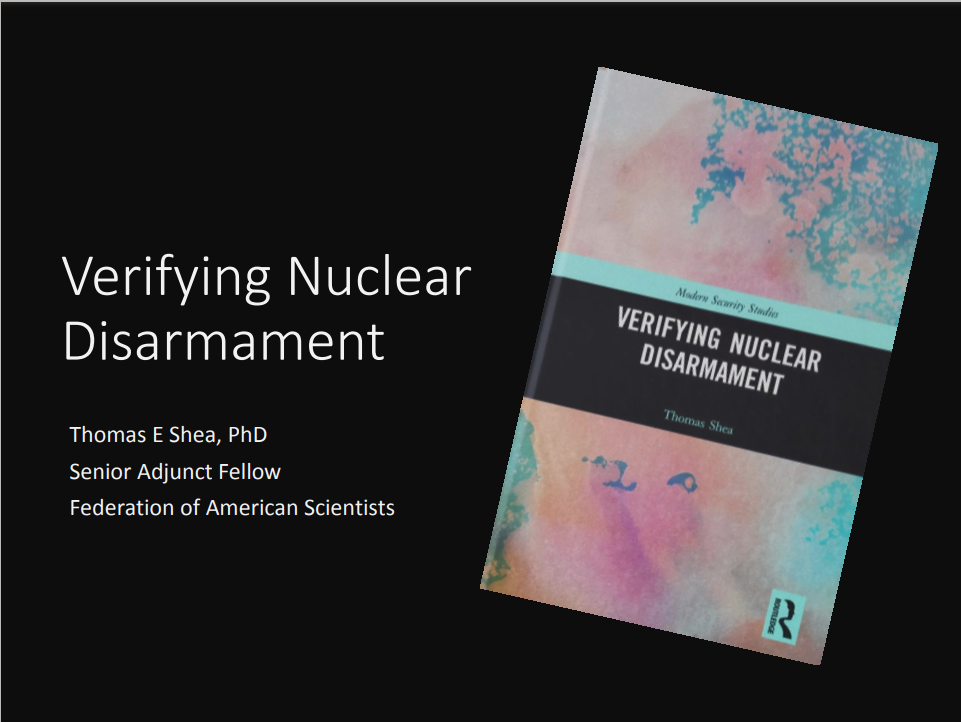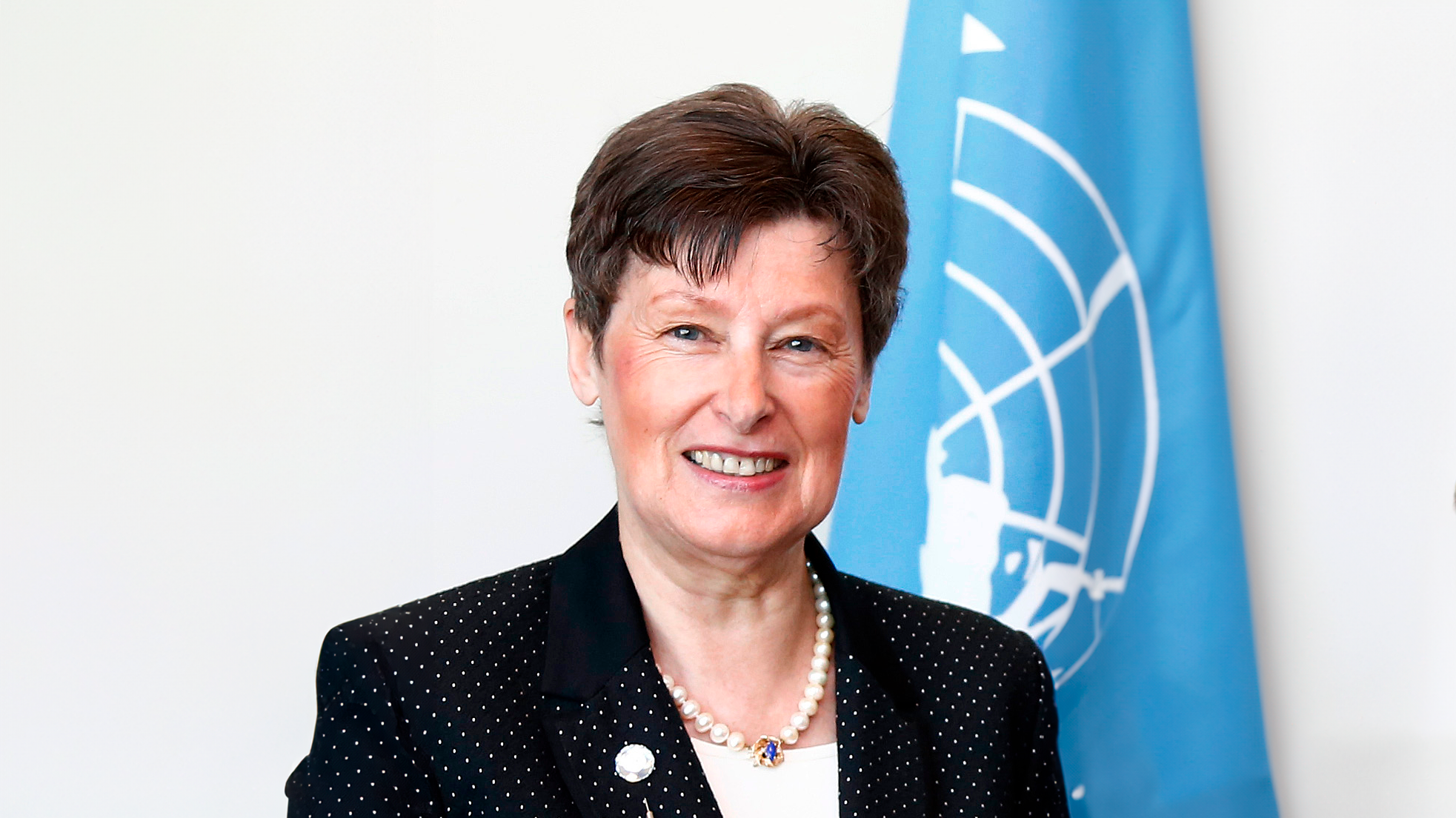
On 9 November 2023, the VCDNP hosted a webinar to discuss the upcoming Second Meeting of States Parties (MSP) to the Treaty on the Prohibition of Nuclear Weapons (TPNW), taking place from 27 November to 1 December 2023 in New York under the presidency of Mexico.
The conversation focused on priority issues to be addressed at the Meeting, the goals and expectations of States Parties and civil society, and on reviewing the intersessional work that has taken place since the First MSP in June 2022. The panel featured senior experts and government representatives, including members of the presidencies of the First and Second MSPs.
The panellists were:
The event was moderated by the VCDNP’s Gaukhar Mukhatzhanova.
Ambassador Alexander Kmentt reviewed the outcomes of the First MSP and the long-term vision they provide for the Treaty’s implementation. He highlighted the First MSP’s importance for demonstrating States Parties’ commitment to the Treaty’s values and resolve to implement it. He also noted that the First MSP set standards for the conduct of future Meetings, especially around the participation of observer states and civil society.
Ambassador Kmentt discussed how the political declaration and the Vienna Action Plan adopted by the First MSP constitute a programme of work for the Treaty’s universalisation and implementation, advancing the humanitarian rationale that underpins the Treaty, developing concrete pathways for eliminating nuclear weapons, and providing support to people and ecosystems impacted by nuclear weapon testing and use. These and other issues have been taken forward by the informal working groups, facilitators, and coordinators appointed by the First MSP.
At the Second MSP Ambassador Kmentt expects States Parties to reaffirm their commitment to the Treaty and highlight its value as an alternative to the nuclear deterrence paradigm. States Parties should also evaluate the effectiveness of the intersessional work and brainstorm improvements where needed.
Ms. Tonie Jaquez, representing the Mexican presidency team, shared an overview of the preparations for the Second MSP, outstanding challenges, and key issues for Mexico as the meeting president. Having recently started negotiations towards a second political declaration, she described challenges in finding ways for States Parties to express concern over the nuclear weapon status quo without singling out specific actors. A central focus of the declaration, she noted, would be to challenge attempts to legitimise nuclear armament.
With regard to the Action Plan and its future, she stressed that the onus will be on States Parties to demonstrate continuous progress towards goals agreed at the First MSP. This is especially important in the context of an apparent trend in other treaties to contest the validity of past commitments.
The Mexican presidency plans to introduce some innovations, including a draft decision for each MSP to focus the debate on a specific theme to avoid repetition. The theme chosen by the President for the Second MSP is the humanitarian consequences of nuclear weapons. Ms. Jaquez noted the symbolic significance of such a debate formally taking place at the UN headquarters for the first time. She further emphasised the focus on sustaining the momentum for Treaty universalisation and outreach to third countries, including nuclear-armed states, to observe the Meeting.
Dr. Patricia Lewis updated participants on the activities of the Scientific Advisory Group, which consists of 15 experts from 11 countries. The First MSP mandated the creation of the Group to provide cutting-edge scientific insights into a range of nuclear weapons issues and engage the global scientific community. The Group has submitted two reports to the Second MSP. The first report covers the Group’s activities since its establishment and explains how the Group has framed its discussions, its ideas on how scientists can support the TPNW’s implementation, how to build a broader network and sustain the Group’s work.
The second report is substantive and addresses the status of developments regarding nuclear weapons and associated risks, humanitarian consequences, and disarmament verification issues, including lessons from past verification initiatives. Dr. Lewis noted that the report should be viewed as “Part I” and will need to be updated periodically to reflect the changing circumstances, risks, and the Group’s understanding of them.
Dr. Lewis also touched on concerns about sustaining the Group’s ability to deliver high-quality scientific guidance from world-class researchers, given the absence of dedicated funding for the Group. All Group members currently volunteer their time, which poses a challenge to longer-term sustainability, especially in light of the need to produce and keep updating the Group’s substantive reports.
Ms. Sanders-Zakre spoke about ICAN’s involvement in facilitating the participation of NGOs and communities affected by nuclear testing in the TPNW’s negotiations and implementation, for example, by gathering civil society input for the informal working groups. ICAN encourages States Parties to replicate the integrated debates between States Parties and civil society representatives that were pioneered at the First MSP.
Additionally, ICAN has been supporting the Treaty’s universalisation efforts, cooperating with the chairs of the corresponding informal working group, and briefing governments and parliamentarians around the world. ICAN also provides informational resources to states on issues such as the TPNW’s complementarity with other treaties.
Ms. Sanders-Zakre emphasised the importance of the smooth and regular working of the Treaty as a signal that progress on multilateral disarmament is possible. She also highlighted a rich programme of civil society-organised events in New York on the margins of the Second MSP.
The discussion following the panellists’ remarks included questions on continuity and coordination between the presidencies of TPNW MSPs, how the positions of EU Member States and the potential influence of G77 countries on China might affect universalisation, and engagement by the Scientific Advisory Group with third countries.



By continuing to use the site, you agree to the use of cookies. more information
The cookie settings on this website are set to "allow cookies" to give you the best browsing experience possible. If you continue to use this website without changing your cookie settings or you click "Accept" below then you are consenting to this.